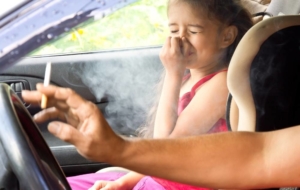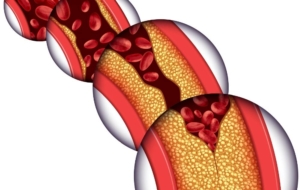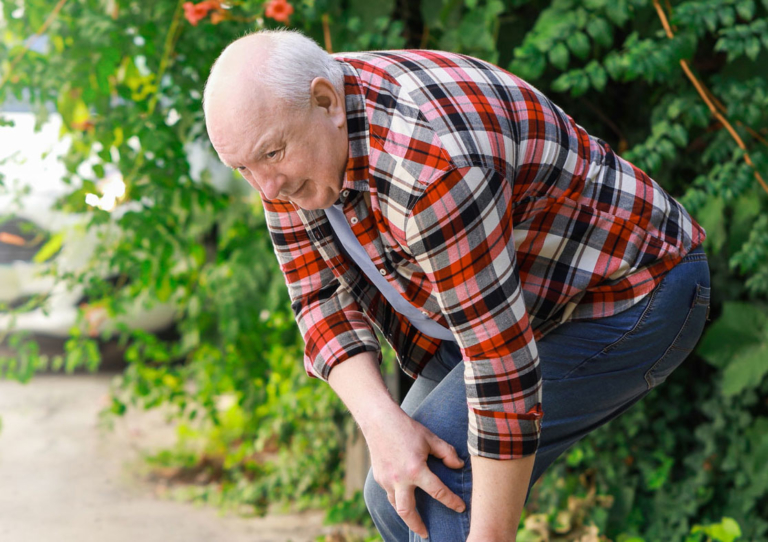It’s checkup day. You’re filling your doctor in on your health, including any relevant details from your family’s medical history. Time and time again your doctor has made sure you are not a smoker or have not been one in the past. You’ve always assured them you’ve never picked up a cigarette in your life…but have you? Many people who are not smokers are often not aware that they should inform their doctor if a significant other, family member, roommate, or co-worker smokes. At your own doctor’s appointment, you often don’t consider the dangers of passive smoking.
In addition, it’s important to understand that lung cancer and respiratory issues are not the only secondhand smoke health risks you need to be concerned about. Secondhand smoking and atherosclerosis (plaque buildup within the arteries) can develop over your lifetime. Here’s what you need to know about PAD and secondhand smoke.
What is Secondhand Smoke?
Secondhand smoke (SHS) is any smoke that comes from burning tobacco. This smoke is filled with nicotine, carcinogens, and other toxic chemicals that can put your health at risk. According to the American Cancer Society, there are two different types of secondhand smoke.¹
- Mainstream: Smoke that is exhaled by the individual smoking.
- Sidestream: Smoke that comes directly from the lit end of a cigarette, hookah, or cigar.
Sidestream secondhand smoke is more dangerous because it contains more carcinogens and nicotine.
Mainstream and sidestream secondhand smoking are both typically involuntary. This means most smokers don’t realize they’re putting others at risk when they smoke on the streets, at a bar, or in a designated smoking area. Knowing the risks will help you be more mindful of your surroundings while you’re out or around family members who smoke.
Exploring the Secondhand Smoke Health Risks
The problem with secondhand smoke is that it exposes nonsmokers to the same harmful chemicals and toxins that smokers expose themselves to. The Centers for Disease Control and Prevention (CDC) states secondhand smoke contains more than 7,000 chemicals. Hundreds are toxic, and about 70 can cause cancer.²
Studies suggest the chemicals found in secondhand smoke can lead to lung infections, asthma attacks, lung cancer, and other vascular conditions like peripheral artery disease. Other dangers of secondhand smoke include:
- Birth defects
- Asthma in adults and children
- Shortness of breath
- Ear infections
- Throat cancer
- Constricted blood vessels and arteries
- Heart attacks or strokes
- Blood clots
The effects of secondhand smoke on the heart, blood vessels, and arteries are not always talked about. Even if you don’t actively smoke tobacco products, secondhand smoke exposes you to the same chemicals that cause heart attacks, blood clots, strokes, and vascular diseases.
If you have any common PAD risk factors, you should be mindful of exposure to secondhand smoke, especially in public places. Smokers are at four times greater risk of developing PAD than nonsmokers and secondhand smoke can expose you to the same toxins so always be mindful of your surroundings.
Peripheral Artery Disease (PAD)
Peripheral artery disease is a serious vascular condition that causes plaque to build up in the arteries. This plaque buildup can cause the arteries to narrow, making it more challenging for oxygenated blood to reach other parts of your body. This can make it more challenging to walk and causes leg pain, numbness, and weakness.
PAD is a progressive disease, and not everyone always shows symptoms during the early stages of the disease. You are most at risk of developing PAD if you have:
- Diabetes
- High blood pressure
- High levels of cholesterol
- Recently had a heart attack or stroke
- Smoked in the past or currently smoke
If you have one or more of these risk factors, you’ll want to avoid secondhand smoke and be aware of the dangers of passive smoking. Also, consider scheduling a consultation with a vascular specialist to get a diagnosis.
The Connection Between PAD and Secondhand Smoke
Active smoking is one of the main risk factors for PAD. The chemicals and toxins found in tobacco smoke can raise your blood pressure and heart rate. It can also accelerate plaque buildup in the arteries.
One of the main secondhand smoke health risks is that it exposes nonsmokers to the same toxins. These toxins can have a negative impact on your overall vascular health.
When secondhand smoke constricts arterial blood flow, this can lead to PAD. When your lower extremities are not getting the oxygen and nutrients they need to function, serious complications can occur such as heart attack, stroke, blood clot, or amputation. Both passive and active smoking affect your heart and blood vessels by causing inflammation.
One study done in 2018 showed that men with high exposure to secondhand smoke experienced an increased risk of PAD and all-cause mortality during the first five years of follow-up. The long-term effects on women, compared to men, remain less clear, highlighting the need for further research. Nevertheless, given the known dangers of passive smoking, it’s advisable to avoid exposure whenever possible.³
If you’re experiencing the early signs of PAD and are worried that smoking could be the cause, contact our vascular specialists today to learn how you can get tested. Give us a call at 888.773.2193 or contact us online to schedule an initial consultation.
Protecting Against the Dangers of Passive Smoking
Avoiding secondhand smoke health risks can be challenging, especially in public places. If you’re at risk of developing PAD, you’ll want to make changes to your routine that help limit exposure. Here’s how to prevent PAD and secondhand smoke exposure:
- If you live in a state that does not prohibit smoking in restaurants, choose ones that are smoke-free
- Stay at smoke-free hotels
- Don’t allow people to smoke in or outside of your home
- Have a no-smoke rule at your home
These small changes can reduce your risk of exposure to secondhand smoke and help you live a longer, more active and smoke-free life.
Treating PAD Caused by Secondhand Smoke
Experiencing the effects of secondhand smoke can make you feel like your health is out of your control, but that doesn’t have to be the case. Although peripheral artery disease (PAD) is a serious, potentially life-threatening condition if left untreated, it is easily treatable if diagnosed early. It’s important to get an Ankle-Brachial Index (ABI) test if you’ve been exposed to secondhand smoke for an extensive amount of time. An ABI will determine the severity of arterial blockages in the lower extremities.
Get Ahead of the Secondhand Smoke Risks With USA Vascular Centers
USA Vascular Centers has facilities across the nation, making it easy to schedule a visit. Whether you are experiencing symptoms related to PAD, are at risk, or just want to learn more, we are here to help. Give us a call at 888.773.2193 or contact us online if you or a loved one would like to learn more or get tested for PAD.
Frequently Asked Questions
Is secondhand smoke worse than smoking?
No, smoking tobacco directly is worse than secondhand smoke. However, secondhand smoke is a serious health hazard. Exposure can cause cancer and damage your vascular system.
How does smoking affect your heart and blood vessels?
Smoking directly affects your heart and blood vessels. The dangers of secondhand smoke are similar to actual tobacco smoking. Chemicals in secondhand smoke can irritate the lining of your arteries, causing them to swell. Evidently, inflammation increases plaque buildup which can lead to the narrowing of blood vessels and arteries.
How Does Smoking Relate to Heart Attacks and Atherosclerosis?
If you have been exposed to secondhand smoke, not only do you have to be concerned about lung cancer, but heart attacks and PAD as well. Atherosclerosis is built up over time; therefore, it’s important to get checked by a vascular specialist before your condition worsens. It is easier to treat plaque buildup in its early stages, which can in turn, prevent a heart attack from occurring.
Sources Cited
- Health risks of secondhand smoke. (n.d.). American Cancer Society.
- Health problems caused by secondhand smoke. (n.d.).
- Lu, L., Mackay, D., & Pell, J. P. (2018). Secondhand smoke exposure and risk of incident peripheral arterial disease and mortality: a Scotland-wide retrospective cohort study of 4045 non-smokers with cotinine measurement. BMC Public Health, 18(1).




